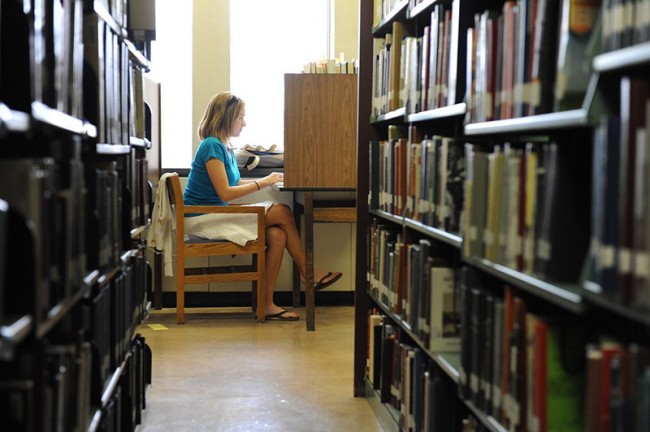Research at Vanderbilt
During my nearly ten weeks on the road in both Northern California and East/Southeast Asia this fall, prospective students often asked me about research opportunities at Vanderbilt. Vanderbilt has many opportunities for research across a wide range of fields, but it is often difficult to describe the kind of research that takes place outside of a laboratory surrounded by test tubes and beakers. However, a recent research experience has given me a great new example to share with students. Last month, 26 Vanderbilt students traveled to Washington, D.C. to learn about the opportunities and challenges of setting federal policy and advocacy surrounding STEM issues. Hosted by the Vanderbilt Office of Federal Relations in partnership with the School of Engineering, the Graduate School, the School of Medicine’s Biomedical Research Education and Training Office, and the Center for Student Professional Development, this two-day conference underlined the importance of setting sound policy, including understanding the federal budget process and the role of coalitions in policy making. It is programs like this that make my job easier in explaining how Vanderbilt is always looking to ground one’s academic experience with some practical exposure to the professional world.

Taking a step back from the sciences, research exists in many different ways at Vanderbilt. The most prominent undergraduate research program is commonly known as VUSRP (pronounced VEE-U-SURP) or the Vanderbilt Undergraduate Summer Research Program. VUSRP enhances faculty and student research efforts by supporting 10 weeks of student-directed research in the summer as well as with funding totaling $4,000. Although the student’s research is not restricted to a subject area within a student’s major area of study, the student must find a sponsoring faculty member within one of the four undergraduate schools. Naturally other less formally-structured opportunities exist and learning more about them is just one click away.
Often the most intriguing research opportunities are discovered through the informal relationships that students have with faculty members. Vanderbilt was recently ranked #8 in undergraduate teaching by U.S. News and World Report, giving undergraduates here a level of access to faculty that makes me jealous. Sometimes a brief conversation with a faculty member can provide leads to new opportunities for undergraduates and better yet, maybe ones that are not widely publicized. The Commons experience also helps introduce new first-year students to the new relationships they can have with faculty at Vanderbilt. (At 18, I was intimidated at the prospect of speaking to someone who may have been influential or spearheaded research that I read about in a high school textbook! Living on The Commons would have certainly helped me break the ice with faculty.) Since many professors are leading researchers in their respective fields, undergraduates can learn first-hand how interpersonal relationships are important in research. As highlighted by the STEM science policy event, a great idea or invention often needs a helping hand from policy makers in Washington, D.C. There is no better practice, in my opinion, than bouncing off ideas and thoughts over coffee or in passing with faculty members here at Vanderbilt who often have experience in translating their research into practical solutions for policymakers. As you consider how research might enhance your undergraduate experience, I urge you to consider the relationships it takes to make your research experience meaningful. And perhaps an informal conversation with your Head of House in The Commons might even lead you to D.C.
